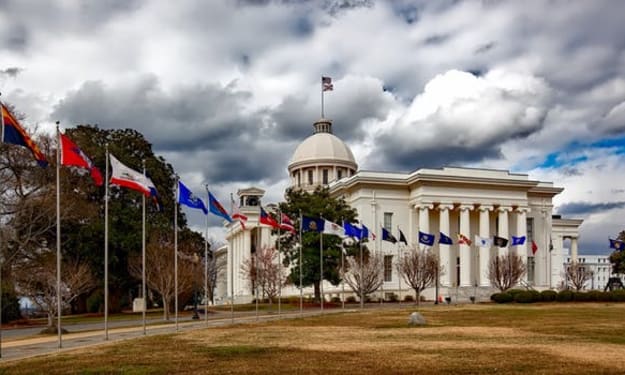Improving democracy
Give power back to the people.

Improving democracy
Giving power back to the people.
Improving parliamentary democracy.
Whilst the following uses the British terms for its elected representatives etc. The same principles could apply to all democracies.
Democracy is being eroded, even destroyed, by a mixture of media distortions and the party politics system. Party politics leads to dependency on the financial support from “vested interests”; that is people or groups, who have their own specific agendas and not a general intent to benefit the nation as a whole. As a result we tend to have 5 year periods that are effectively elected dictatorships, when one or other party has a clear majority; or we have stagnation of governance while a hung parliament staggers from one crisis to another, while political point scoring and petty squabbles take the place of statesman like government. We need changes and these changes must be an improvement in the way the voters are involved in actual decision making.
How about stopping every issue from being a party political issue. How about a new flow of ideas, the government poses a question, the public “write” to their constituency MP with answers and these are collated and published by parliament- not the government.
All public responses to be via the local MPs. The government then is required to consider this publication and propose a bill to be debated and passed, or rejected, by parliament and the house of lords. The usual opportunity for amendments can exist. Party politics does not come into it, the government do not collectively demand adherence to any particular solution and so their continuance on power is not at risk.
It will require changes to the way constituencies function, they must, once an election is over, become non party bureaucracies. They must create pathways for individual members of the public to communicate suggestions of solutions. Web sites in each constituency, that allow public inputs to selected pages, can be set up with emphasis on libraries being input centres. This ensures that even those without their own personal access to e mails, can still offer their ideas. Abusive or anonymous posts to be automatically deleted. Serious abuse to be referred to the police for consideration of criminal activity.
Financial policy will still have to be a party political affair since all the expectations and financial information will only be available to the government, the same with defence and security issues. It is unrealistic and probably dangerous, to allow public access to all the information that government ministers have. They are elected to do the best they can for the nation and on these matters we have to allow them to do their duty. To announce there is going to be a terrorist attack on such and such a day and then ask people to write to their MP with ideas about what should be done, is simply stupid. But there are other areas where decisions could be opened up to more democracy. For example, should cannabis be fully legitimised and how can the supply be monitored. There are other issues such as retesting all vehicle drivers every 5 years, to see if reaction times and observation power, still suitable for driving. Sunday shop opening hours, hunting, capital punishment, recycling rules and many other issues can be open to wide debate and not allow the individual MPs personal preferences to dictate policy for everyone.
One other way of opening up democracy, while still giving parliamentary democracy the final say, is to establish in every constituency, local referendum machinery. Again utilise Libraries. Put in a voting booth. The voter goes in, swipes an ID card and votes on a screen for which alternative they wish. People unable to get to a library are allowed postal votes. The votes on each subject can be automatically totalled and announced for each constituency. Parliament then has to collate and publish these figures and present the conclusions to the Government. The government then produce a bill that can be debated, passed or rejected. Again without it being a party vote and without it being necessary for the government to resign if the vote goes against their preferred option.
The actual wording of the referendum questions can be so very important and in this the local MP should be chair of a “wording committee”. Members of this committee, which must be small and not have a secretariat or any form of bureaucracy, after all every MP should be able to read and write; they do not need other people to write done what is decided. The committee have to include representatives of opposing interests, for example if it is a referendum on hunting, the committee deciding on the wording of the questions to be voted on, should include land owners, hunting people, animal rights and veterinary representatives etc. If the referendum is about legalising cannabis, then the wording committee should include medical, (physical and psychiatric) opinion, the police and representatives from needle exchanges and drug abuse charities.
The MP has deciding vote on these wording committees and interaction with other constituencies should be encouraged but all within strict time limits.
Each constituency works to a voting day that is nationally declared for each subject. Campaigns for and against various proposals can take place and the people can vote if they feel strongly enough about it. This returns democracy to the people and an MP can not put their own preference before that of the majority of their constituents.
There must be many other good ideas; the important thing is to start debating and deciding how to improve democracy before it gets too damaged.
About the Creator
Peter Rose
Collections of "my" vocal essays with additions, are available as printed books ASIN 197680615 and 1980878536 also some fictional works and some e books available at Amazon;-
amazon.com/author/healthandfunpeterrose
.






Comments
There are no comments for this story
Be the first to respond and start the conversation.